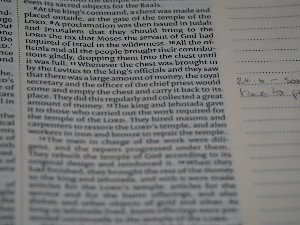Andrés Ordóñez
Comercio, raza y cultura. La Italia de Mussolini, Iberoamérica y el México posrevolucionario
Introduction
Comercio, raza y cultura. La italia de mussolini, iberoamérica y el méxico posrevolucionario. Explora las relaciones políticas, económicas y culturales entre la Italia de Mussolini, Iberoamérica y México (1920-1940), analizando comercio, raza y cultura.
Abstract
La relación política, económica y cultural de Italia con México y los países iberoamericanos entre 1920 y 1940 es inseparable de la crisis finisecular decimonónica y la emergencia de prácticas marcadas por los totalitarismos que habrían de configurar la cultura política del siglo xx. En ese contexto, la construcción autoritaria mussoliniana no sólo orientó las estrategias y los intercambios comerciales y culturales con los países iberoamericanos; también constituyó un modelo de pensamiento político que, en muchos sentidos, estructuró la cultura política de no pocos países del subcontinente. Dicha orientación permeó de manera profunda el imaginario político de México y las demás naciones hispano-lusitanas, y sus huellas son palpables hasta nuestros días. Este ensayo aborda el fenómeno antes descrito a partir de la articulación estratégica de tres elementos específicos: la aproximación comercial de Italia sobre la base de su diáspora en Iberoamérica, el rescate de los vínculos histórico-culturales compartidos y la reivindicación de una supuesta comunidad racial cuya diversidad encontraría unidad en una latinidad originada pretendidamente en la era imperial de Roma.
Review
The proposed essay, "Comercio, raza y cultura. La Italia de Mussolini, Iberoamérica y el México posrevolucionario," promises a fascinating and timely exploration of the multifaceted relationship between Fascist Italy and Latin American nations, with a particular focus on post-revolutionary Mexico, from the 1920s to the 1940s. The abstract effectively situates this inquiry within the broader context of fin-de-siècle crises and the emergence of totalitarian political cultures in the 20th century. The central argument, that Mussolini's authoritarian project served not only as a driver for commercial and cultural exchanges but also as a significant model for political thought in the region, is compelling and suggests a nuanced understanding of historical influence that extends beyond traditional diplomatic narratives. A key strength of this work lies in its strategic articulation of three distinct yet interconnected elements: the commercial approach leveraging the Italian diaspora, the invocation of shared historical-cultural ties, and the controversial claim of a unified "Latin" racial community rooted in imperial Rome. This tripartite analytical framework offers a robust lens through which to examine the depth and breadth of Italian influence, moving beyond simplistic notions of political alignment to explore subtle ideological penetration. The abstract also commendably highlights the enduring legacy of these interactions, asserting that their "huellas son palpables hasta nuestros días," which invites an examination of historical continuity and transformation. It would be particularly interesting to see how the concept of a "supuesta comunidad racial" was navigated and adapted within the specific political and cultural landscape of post-revolutionary Mexico, especially given its own complex relationship with indigenous identity and nation-building. Overall, this essay appears to be a highly significant contribution to the fields of international relations, cultural history, and political science, particularly concerning the interwar period and the global reach of authoritarian ideologies. By dissecting the complex interplay of commerce, culture, and manufactured racial identity, the author promises to illuminate a critical chapter in the political imaginary of Latin America. The proposed analysis of how Mussolini's project constituted a "modelo de pensamiento político" for the sub-continent offers a rich avenue for further scholarly discussion and could provide valuable insights into the transnational flows of political ideas. This promises to be an insightful and well-structured piece, likely to stimulate considerable discussion and enhance our understanding of 20th-century geopolitical and cultural dynamics.
Full Text
You need to be logged in to view the full text and Download file of this article - Comercio, raza y cultura. La Italia de Mussolini, Iberoamérica y el México posrevolucionario from Quaderni Culturali IILA .
Login to View Full Text And DownloadComments
You need to be logged in to post a comment.
Top Blogs by Rating
'Um' Isn't Just a Stumble: Wha...
By Sciaria
Is Electro Music the New Class...
By Sciaria
Unseen Engineers: Nanotech's B...
By Sciaria
Favorite Blog
Beyond the Stereotype: Unpacki...
By Sciaria
Electro: The Art of Engineered...
By Sciaria
Goodbye Chargers: The Rise of...
By Sciaria
Related Research
Design and develop of trader recruitment information system in web-based online forex broker on pt. international business futures
Analisis kondisi kelembaban dan suhu optimum untuk pertumbuhan maggot dalam proses penguraian sampah organik
Los discursos en torno al clima y al medioambiente
Share
Notice Board
- THE INFLUENCE OF SELF-EFFICACY ON ENTREPRENEURSHIP INTENTION MEDIATED BY SHARIA ENTREPRENEURSHIP BEHAVIOR IN THE CONTEXT OF ISLAMIC STUDENTS' EDUCATION
- PRESCRIBING MESSIAH: A CASE STUDY CONCERNING INTERNAL CONVERSION
- FACTORS SHAPING THE COGNITIVE DISSONANCE OF ONLINE CONSUMERS (STUDY OF FASHION PRODUCTS ON SHOPEE IN INDONESIA)





